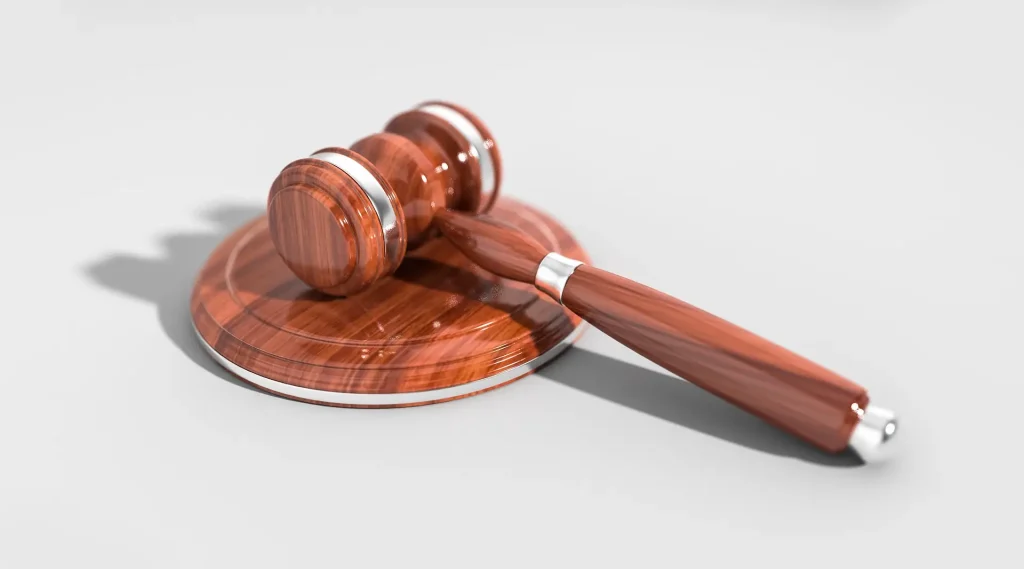“The process for appointing the President of the Croatian Supreme Court, a challenge raised in the 2021 Rule of Law Report, was concluded,” the report says.
“Responding to findings of the past Rule of Law Reports, amendments strengthened the State Judicial Council’s and State Attorney’s Council’s role in the selection of judges and state attorneys, and, as committed in the context of the Croatian Recovery and Resilience Plan.”
New laws introducing regular security checks on judges and state attorneys conducted by the National Security Agency raised concerns, the report notes.
One of the recommendations therefore is to reconsider “the newly introduced periodic security checks conducted by the National Security Agency on all judges and state attorneys by ensuring their integrity based on other existing mechanisms, taking into account European standards on judicial independence and autonomy of prosecutors and the opinion of the Venice Commission.”
“Criminal proceedings concerning cases of alleged corruption among judges and disciplinary proceedings are ongoing. The level of perceived judicial independence remains very low,” the report says, adding that the Supreme Court President disseminated a questionnaire for judges “which has raised concerns among them.
The questionnaire requested information on the external activities of judges and their income, their membership in associations, public appearances, the employment at courts of their family members/relatives, and any lawsuits brought by them against journalists.
Long criminal proceedings undermine the fight against corruption
“The justice system extended electronic communication tools and decreased backlogs at higher court instances, but significant efficiency and quality issues remain.”
The Commission notes that a new Strategy on the Prevention of Corruption for 2021-2030 was adopted in October 2021 to strengthen the prevention of corruption and raise awareness about its harmfulness.
“While the effective investigation of corruption continued, including on high-level corruption, the number of indictments and final judgments for corruption decreased. The excessive length of criminal proceedings continues to undermine the effectiveness of the anti-corruption framework,” the report says.
“The new Law on the Prevention of Conflicts of Interest has strengthened asset declarations and improved the framework on revolving doors.”
A Code of Ethics was adopted for members of Government, however, a similar one for members of Parliament and detailed rules on lobbying activities remain to be introduced, the report says. “The new framework on the protection of whistleblowers entered into force On the Government’s proposal, Parliament adopted amendments to remove immunity of members of Government for corruption crimes.”
High number of cases of abusive litigation targeting journalists
“The legal framework for media pluralism and freedom guarantees the basic right of freedom of expression and the right to information. There are concerns about the political independence of the Council for Electronic Media and the management of the public service broadcaster HRT,” the report says.
“The revised Electronic Media Act updated rules on the transparency of state advertising and media ownership, and on media concentration. However, a need remains to further strengthen the framework on state advertising, including the new public tender procedure, as concerns related to the economic dependence of certain media outlets on state advertising persist. The establishment of an independent, self-regulatory body for the media is being discussed.”
The Commission recommends further strengthening “the framework for a fair and transparent allocation of state advertising, by establishing clear criteria, good practices and oversight measures to guarantee the effective functioning of the new public tender procedure for local and regional media.”
“The professional environment for journalists is impacted by verbal aggressions against journalists, including by politicians. A high number of cases of abusive litigation targeting journalists remains a significant concern. Delays in the processing of requests for information from journalists remain an issue,” the report says.
The Commission recommends addressing “the issue of strategic lawsuits against public participation targeted at journalists, including by addressing the abuse of legal provisions on defamation and encouraging awareness, taking into account European standards on the protection of journalists.”
The Commission notes that the number and duration of public consultations increased, which resulted in more participants providing their comments, and that Parliament further decreased the use of emergency procedures.
The Constitutional Court reviewed some emergency measures and has accumulated backlog due to lack of resources, the report says, adding that a challenge exists regarding the follow-up of the Ombudsperson’s recommendations, and on access to information. “While some preparatory steps were taken, the Government has not progressed in adoption of the new National Plan for Creating an Enabling Environment for the Civil Society Development 2021-2027.”
One of the recommendations is to ensure a more systematic follow-up to recommendations and information requests of the Ombudsperson.
Speaking at a press conference, Commission Vice-President for Values and Transparency Vera Jourova said that due to problems under the previous Slovenian government, primarily due to difficulties in financing the Slovenian STA news agency, the Commission started thinking about introducing mandatory rules for all member states in order to protect the media sphere as well as possible.
“Rule of law remains a bedrock of democracy. Russia’s war in Ukraine is another reminder of the importance of our work to uphold and promote rule of law in the EU and beyond. This year’s report shows that the debate about rule of law in Europe is making progress as Member States make improvements and address rule of law matters. Unfortunately, concerns still remain in some Member States, especially when it comes to the independence of judiciary,” she said.
For more, check out our politics section.











